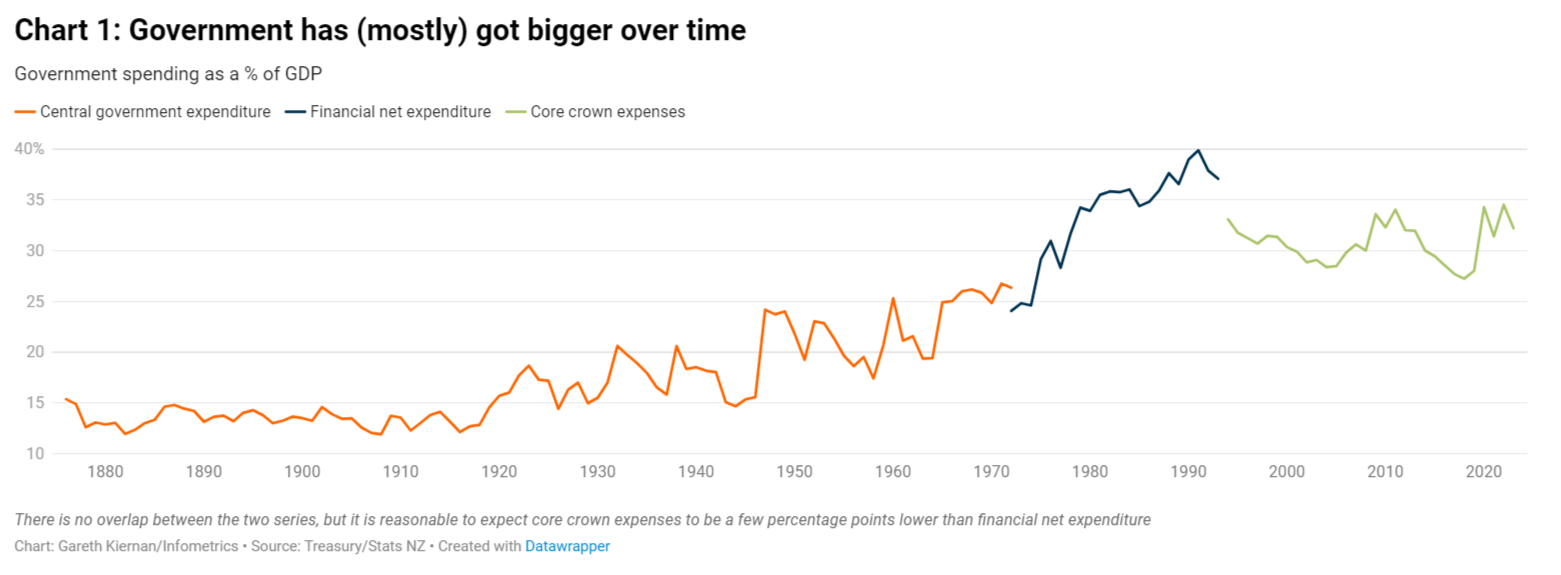Economist calls for nuanced fiscal policy debate

Gareth Kiernan (pictured above), Infometrics’ chief forecaster and director, has stressed the potential significance of fiscal policy over interest rates in shaping New Zealand’s economic landscape this year.
In an opinion piece first published on Stuff, Kiernan argued that while the Reserve Bank’s monetary policy decisions, particularly interest rate changes, directly impact household finances and receive extensive attention, the government's fiscal policies are not scrutinised to the same extent. This lack of attention occurs despite fiscal decisions having profound, albeit less direct, effects on the economy.
“Changing the official cash rate means my mortgage repayment changes,” he said. “But changing the funding to a government department doesn’t show up in my face (or my banking app). Perhaps we should be talking more about the government’s spending decisions.”
A growing NZ government
Kiernan highlighted historical trends indicating a gradual increase in government size relative to GDP since World War I, with a notable rise during the Muldoon years (1975-84) that has persisted. By 2022, government spending as a proportion of the economy was at its highest since the early 1990s, reflecting a record high in government consumption spending.

Understanding fiscal debate nuances
With the government making up a bigger and bigger share of the economy, Kiernan called for a more nuanced debate on government spending, urging a move beyond simplistic narratives to acknowledge the complexities and trade-offs involved in fiscal decisions.
“The debate about government spending often seems to become unhelpfully reductive – National might be characterised as lacking compassion for poor people because they want to increase sanctions for Jobseeker beneficiaries, for example,” Kiernan said.
“We need to push beyond this sort of rhetoric to recognise that trade-offs and choices are at the core of government spending decisions, unless the tax take is deliberately grown to accommodate all new spending ideas and initiatives.
He pointed to the Ministry of Housing and Urban Development’s advocacy for sustained housing support programs as an example of meaningful government spending that can mitigate the impact of economic downturns on the construction industry, while also stressing the need for strategic funding reallocation towards stable housing solutions.
Efficiency drive or fiscal shortcut?
Kiernan criticised the National-led government’s directive for departments and ministries to identify spending cuts of 6.5-7.5% as part of an efficiency initiative, suggesting that such cuts may not prioritise the most effective use of taxpayer funds and could instead result in the loss of valuable services and projects.
“Within Wellington, the anecdotes suggest that these savings won’t necessarily be achieved by identifying and cutting functions that are more peripheral or offer fewer benefits to the government and taxpayers,” he said.
“Instead, we seem more likely to see cuts being achieved by the path of least resistance – disestablishing roles that are already vacant and pausing proposed work programmes before they have got underway.
“This ad hoc approach might realise the fiscal outcomes that the government is looking for, but it is far from guaranteed that it will achieve the most effective outcomes in terms of prioritising the use of limited taxpayer funds.
Read Kiernan's opinion piece here.
Get the hottest and freshest mortgage news delivered right into your inbox. Subscribe now to our FREE daily newsletter.



